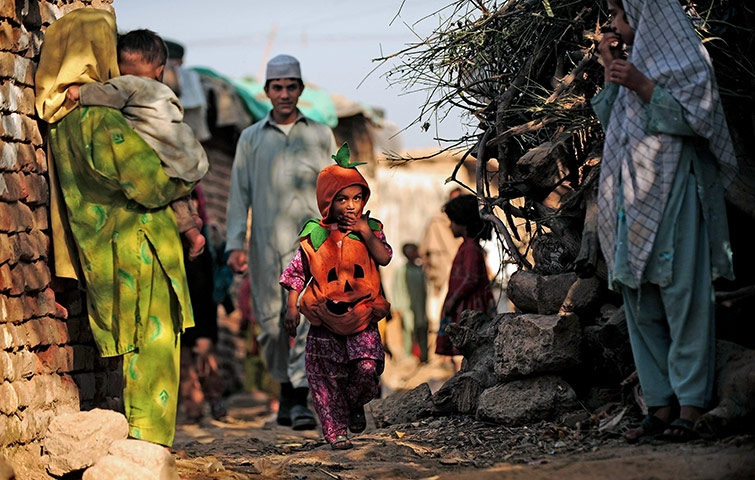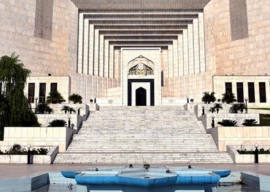
Residents of katchi abadis of the capital assembled at Muslim Colony in Bari Imam to finalise their protest plans against possible evictions, said a press release.
The gathering was attended by a large number of residents from katchi abadis in sectors I-11, I-9, H-11 and F-7, activists of Awami Workers Party (AWP) and National Students Federation.
While speaking to The Express Tribune, AWP member Nazish Zahoor said former president Pervez Musharraf’s government had issued notices ordering the regularisation of katchi abadis 2004. During that period, Muslim Colony, one of the largest and oldest katchi abadis of Islamabad, had nearly 700 of its houses demolished by the Capital Development Authority. A policy drafted back in 2004 for the katchi abadis never materialised, he added.
Apart from water shortages and inadequate access to health and education, the slumdwellers are also treated as lesser citizens, said Zahoor.

The size of various katchi abadis has grown due to a series of catastrophic events, including the 2005 earthquake, 2010 floods and military operations in Swat and the tribal areas that resulted in a large migration of internally displaced persons to the twin cities in a bid to escape violence and poverty.
The situation has not gotten much better under the Pakistan Muslim League-Nawaz (PML-N) government. In recent times, Interior Minister Chaudhry Nisar Ali Khan has stated that some of the capital’s slumdwellers could be a potential threat to the country’s security, thereby justifying the government’s eviction drives against katchi abadis.
Zahoor said the PML-N government has always been an opportunist party that overlooks the bigger picture. “The majority of the capital’s slums are located in prime areas.
The government is more interested in acquiring land than protecting the people who occupy it,” he said.
“The government does not forewarn the slumdwellers about the eviction drives. They issue notices all of a sudden and launch operations, giving the residents very little time to think of alternative solutions,” he said.
AWP Punjab General Secretary Aasim Sajjad Akhtar criticised the opportunistic behaviour of those slum leaders who align themselves with mainstream political parties and cause unnecessary divisions.
He added that AWP plans to field candidates in the local elections who will represent the needs of the twin cities’ slumdwellers. Akhtar called for a large people’s assembly in late September to discuss issues of land ownership, land reforms and housing needs.
AWP member Asghar Gujjar noted that plots given to some residents of registered katchi abadis were not sufficient to meet the needs of multiple family households.
Recounting her own struggle, AWP’s Rani Bibi said that mobilising women is key to challenging the power of the state but is also important for building solidarity among communities divided along ethnic and religious lines.
Published in The Express Tribune, September 2nd, 2013.

















COMMENTS
Comments are moderated and generally will be posted if they are on-topic and not abusive.
For more information, please see our Comments FAQ